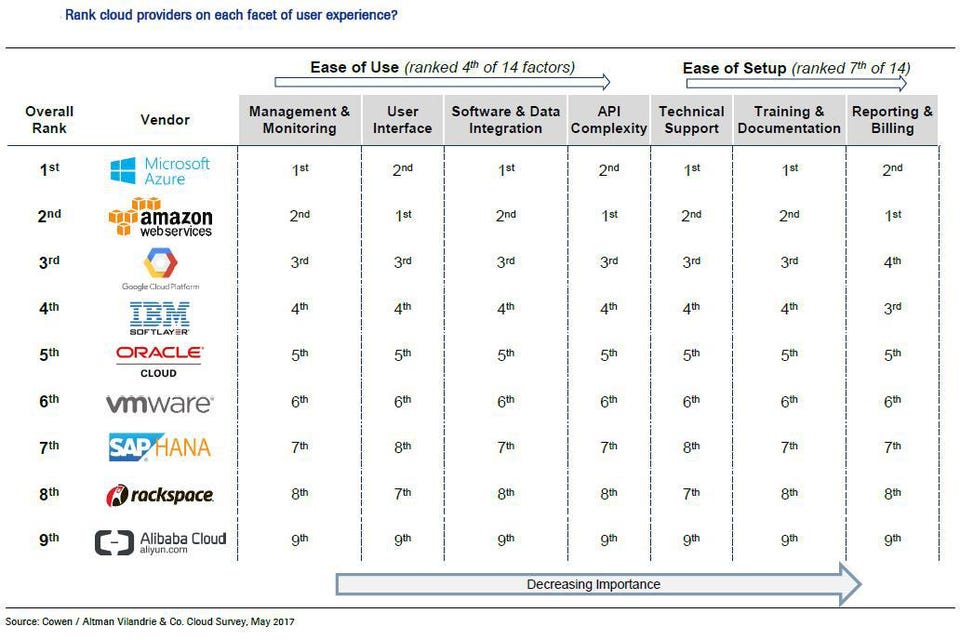
Microsoft Azure is a cloud platform that powers infrastructure, platforms, and software. Azure can replace or augment the capabilities of on-premise servers.
Microsoft explains Azure this way: “The Azure cloud platform is more than 200 products and cloud services designed to help you bring new solutions to life.”
So, that’s the high level. To fully understand Azure, let’s dig into some of the specifics.
The term “cloud” has been around forever; in fact, it initially was coined in the 1960s, originating from cloud symbols used in computer industry flowcharts. Today, “the cloud” refers to servers that are accessed via the internet, and also to the software and platforms that run on those servers.
Up until the past twenty years or so, most business applications were run on on-premise machines. As cloud computing has developed, it has enabled businesses to access applications and databases without the need to maintain on-premise servers.
Today, cloud services are sold by providers like Microsoft, Amazon, Google, IBM, and others. When you purchase cloud services, you’re essentially purchasing computing power at one (or more) of these companies’ data centers. Because these are delivered on a recurring basis, the cloud makes server usage an operational expense rather than a capital one. It’s also more scalable and you aren’t required to perform your own physical maintenance.
Azure is widely regarded as a top cloud platform on the market today. It’s the second largest cloud platform, behind Amazon’s AWS, but its market share is growing more rapidly thanks to several advantages.
One advantage, as noted in this graphic (created based on a study by Cowen and shared by Forbes), is that Azure is rated by users as the top cloud platform based on user experience.

The same study found that Azure was the most likely cloud platform to be purchased or renewed by respondents.
Another advantage is that Azure has the most data centers of any cloud provider, with over 60 regions currently in service.
Finally, Azure has an advantage when it comes to hosting or powering Microsoft products. Microsoft applications and platforms, as might be expected, tend to work seamlessly on Azure.
You may have heard statements like, “the potential of Azure is limitless” or “you can do pretty much anything on Azure.” Those statements are little hyperbolic, but they also aren’t wrong/
You can run almost anything on Azure.
Microsoft’s own service page lists an impressive array of products and applications. Here’s a fractional sampling:
The list goes on and on. While Azure is optimally suited to run Microsoft solutions, it really can do just about anything.
Given what we’ve just noted, you’ll probably be unsurprised to hear that Azure is used by businesses in a wide variety of different ways. With that said, here are a few of the most common use cases:
Azure is used by businesses to run mission-critical applications.
The day-to-day operational processes of many businesses are now run entirely on Azure.
For example, Microsoft notes that Allscripts, a leading healthcare software manufacturer, delivers its services via Azure. JetBlue uses Azure for their ecommerce site. Walgreens runs critical platforms on Azure.
You get the idea.
Azure is used for data storage and backups.
In addition to running operational applications, Azure is also an ideal way for businesses to store data – for the purposes of business intelligence or for cybersecurity. As mentioned above, Azure can power a variety of database systems, and many businesses use it to backup critical data.
Azure is used to power Windows 365 Cloud PCs for remote work.
Finally, at a very practical level, Azure is used by many businesses to power remote work solutions like Windows 365 Cloud PC.
Windows 365 Cloud PC, as we’ve written before, allows users to access a Windows operating system (OS) from anywhere with an internet connection, standardizing and securing remote work.
It’s a great solution for the modern workforce – and a great use of Azure.
Cloud computing may seem like it’s been around for a long time, but its capabilities are still actively changing the game. Many businesses are in the midst of being transformed by unlocking operational advantages.
At Exigent, we’re here to help you move forward.
We’ve been helping businesses to meet the demands of their fussiest Microsoft power users since 1997. Cumulatively, our staff has over 200 years of experience implementing and supporting Microsoft technologies.
In other words, we know Microsoft platforms like Azure inside and out, and we can help to answer any questions you have.
If you are ready to implement cloud-based services, we can provide white-glove support to make the process quick and seamless. Schedule a free consult today.
No matter what, our hope is that the information presented here has been helpful as you learn about Azure and consider this solution for your own needs. Good luck!
Daniel Haurey Jr. is the president and founder of managed IT services provider Exigent Technologies, which he founded in 1997. Under his leadership, the MSP has earned accolades ranging from Channel Futures MSP 501 to being named SonicWall’s 2024 MSP Growth Partner of the Year. Dan is a true entrepreneur, dedicated to growing, investing in, and mentoring small businesses. You can find him on LinkedIn, where he regularly posts about technology, business, leadership, and community.